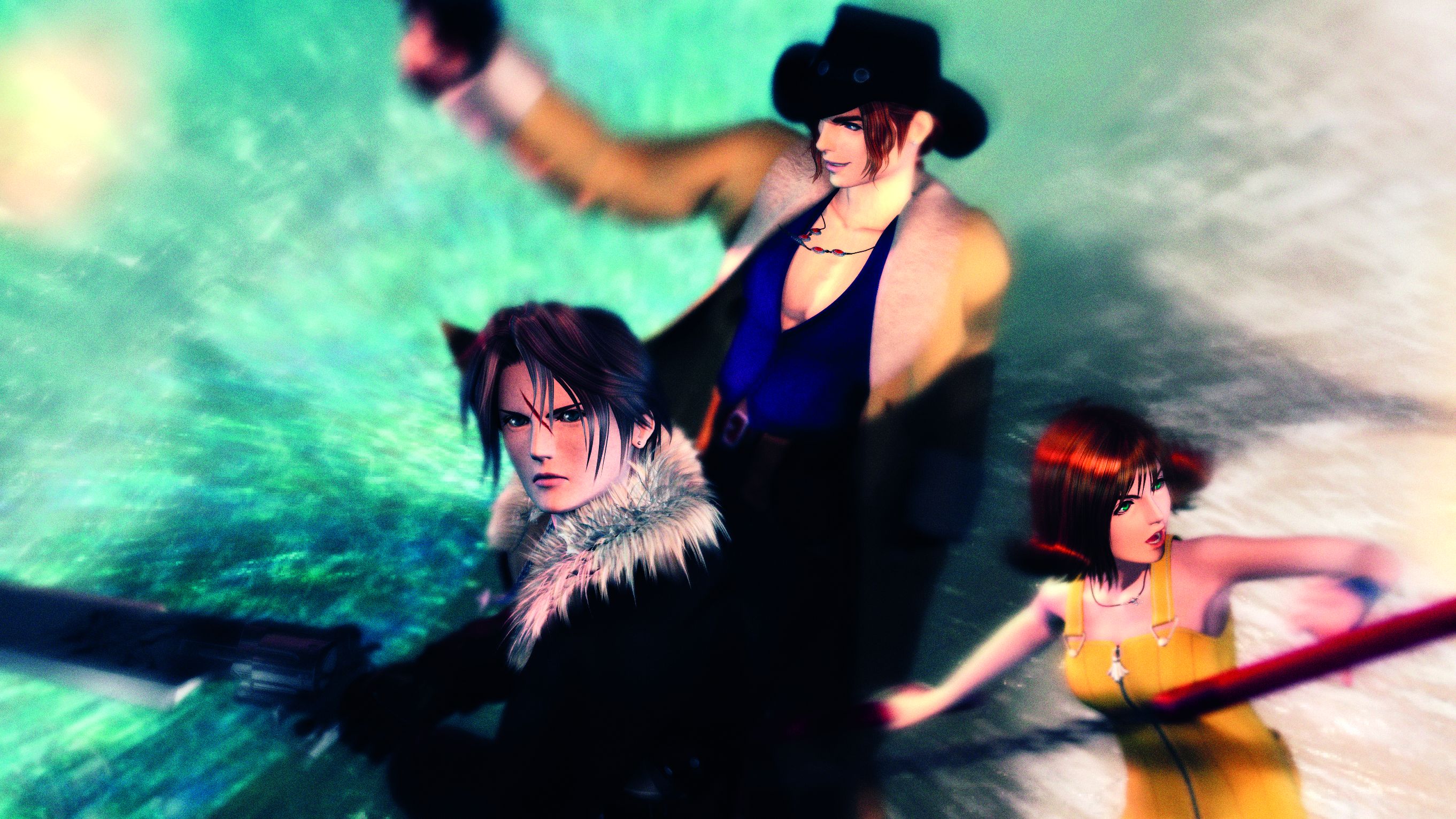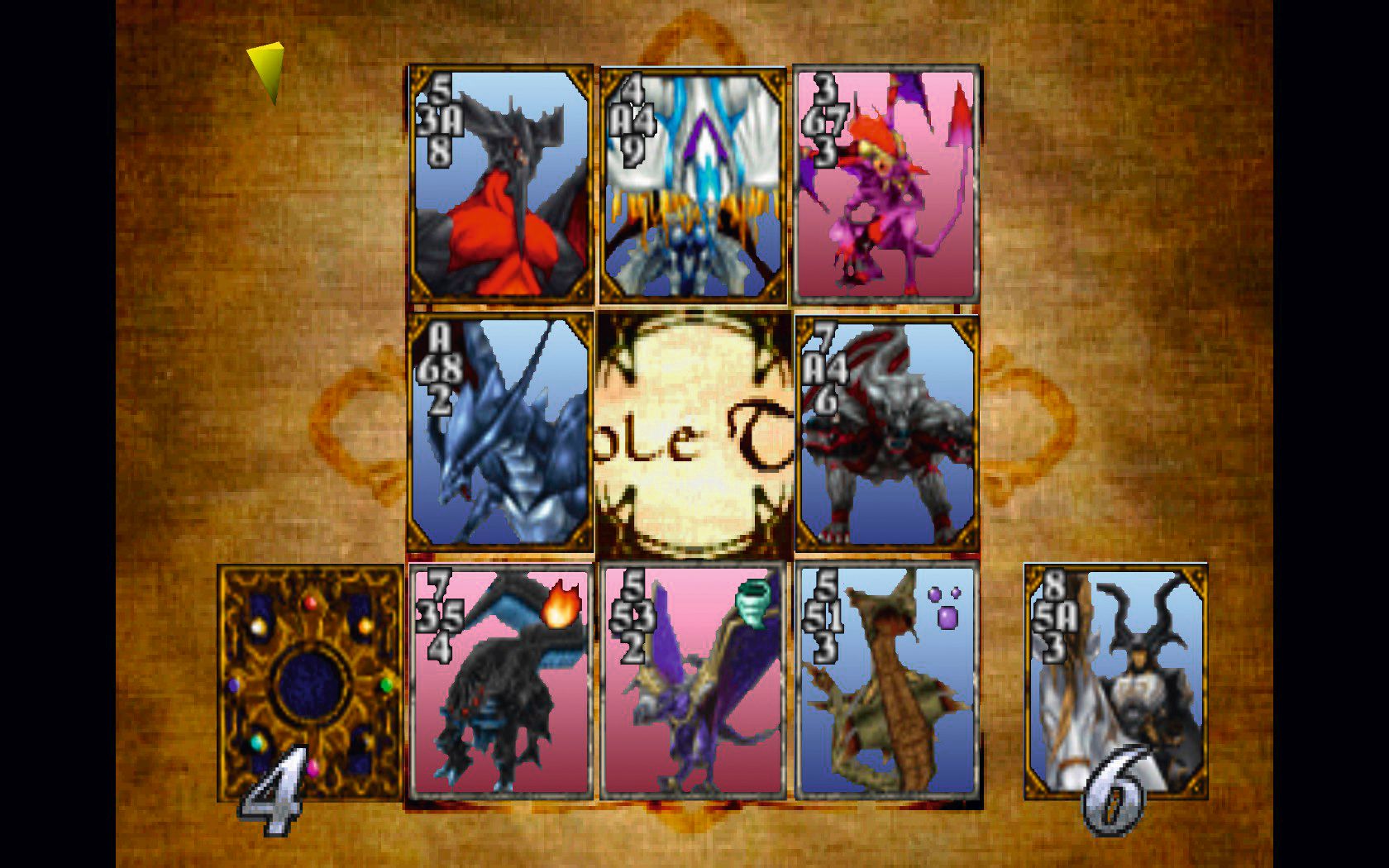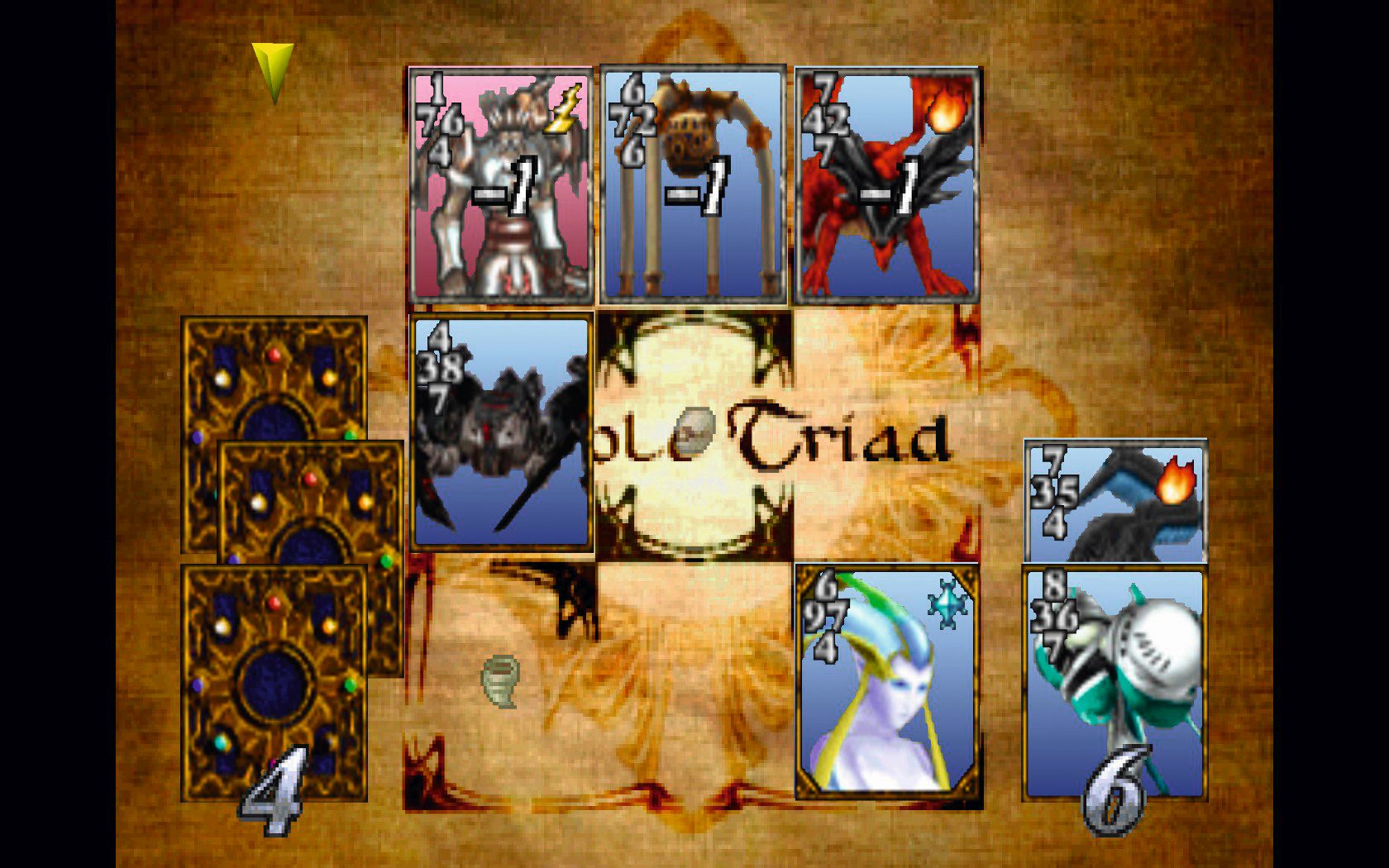Why I love Triple Triad in Final Fantasy VIII
The minigame that's almost as good as the game itself.


In Why I Love, PC Gamer writers pick an aspect of PC gaming that they love and write about why it's brilliant. This week, Sam plays a few hands in Triple Triad.
The emergence of the card game Gwent as a key part of The Witcher 3’s success immediately made me think of Final Fantasy VIII’s own TCG, Triple Triad. As with Gwent, you can power through the main quest without getting into the card collecting or AI-battling at all, but if you get involved in the scene, it only enhances your adventure.
Final Fantasy VIII is an RPG set in a kind of academy for young soldiers, starring moody orphan Squall, his rival Seifer and a bunch of other kids. As that premise suggests, it’s very anime in style, and transforms from a relatively simple tale of war between two nations to a sprawling sci-fi dumpster fire about sorceresses from the future.
I can’t defend it, and by the end it’s tricky to still enjoy it. FFVIII makes up for it in the smaller stories and character moments, as well as typically excellent worldbuilding from the team at Squaresoft.
No matter where you find yourself, the people there play Triple Triad. FFVIII has an alternate talk button that challenges NPCs in each environment to a game. The scene then cuts away to a 9x9 grid, where ludicrously catchy, jaunty gambling music kicks in.
Each player picks five cards from their deck. Each card has four numbers on it from 1 to 10, pointing up, down, left and right. For example, one of the game’s better cards, Ifrit, has 9 (up), 6 (right), 2 (down) and 8 (left). The goal is to flip as many of the player’s cards as possible until the grid is filled up—placing Ifrit below a card with a number 5 pointing down means the card will flip in my favour, because 9 beats 5. The score is then 6-4 to me. If my opponent has a card with a value of 3 or more pointing upwards, they can place that below Ifrit and flip my card in return, putting the score back to 5-5. If I end the game with more cards flipped than my opponent, I win and I get to take one or more of their cards.

It’s simple to get to grips with, but the arrangement of numbers on the better cards means you can get pretty tactical. If it’s my turn first, I’ll always place Ifrit in the bottom left corner, because it’s unlikely the AI will have any cards that can flip an 8 or 9 from there. The ideal hand you want to build has a card you can play in any corner of the grid and dominate.
That point takes a long time to reach. Initially, you’re given a pile of rubbish cards. Gradually, you start challenging other students and building up a deck. Almost every NPC in the world will play Triple Triad with you, which is cool, and that includes major story characters. I like the idea that this card game is the one thing everyone in a war-torn, varied world has in common.
The biggest gaming news, reviews and hardware deals
Keep up to date with the most important stories and the best deals, as picked by the PC Gamer team.
Certain NPCs carry certain cards, and challenging better players becomes one of Triple Triad’s larger goals. One small lad who runs around the school carries a ‘Mog’ card, one of the first decent rare cards you can win. I like the idea of Squall outsmarting a small child at this daft card game then taking his most treasured card away. FFVIII would be improved exponentially if you could see the kid’s crushed expression, and Squall offering a condescending “them’s the rules, son.” Of course, if you take on this kid and end up losing your Ifrit card, like I did on my first time playing through the game, the salty tears will be entirely your own.

Later, the game makes it easier on you by handing over a few more powerful cards gratis—the demonic Diablos, for example, is one of the rare cards with a ‘10’ value, represented on the card as an ‘A’. This means it can’t be flipped at all. From here, you can start challenging the secret CC Group at Balamb Garden, your home base—and in a nice twist, the greatest Triple Triad player in the game is later revealed to be a member of your party. Triple Triad develops into a more complex and high-powered aside as better cards are filtered in by new opponents.
As are new rules. ‘Elemental’ means that cards with a fire, ice, or earth symbol have their values increased if they’re placed on a matching tile on the grid, and ‘one’ means you can only win or lose one card at the end of the round, no matter the difference in score. Every region of the map has its own ruleset, and when you travel somewhere else, that ruleset comes with you for your next match—and those rules may even become a permanent fixture in that region. Unfortunately, one rule—random, which picks your cards for each game, so you surrender tactical control of your deck – is so atrociously unfair it almost breaks the game. But even then, it’s possible to abolish rules in each area, too.
Triple Triad is pretty much my perfect minigame—it’s simple to play and collecting cards feels as satisfying as it would playing a real-life trading card game, were I able to get away with that as a grown-ass man.
If you love Triple Triad, you might want to check out the fan-made version that's giving the minigame a new lease of life.


